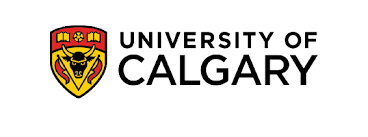University of Calgary team concludes 2nd in regional Chem-E-Car competition
It didn’t take a Schulich School of Engineering team long to make its presence felt in the world of building and designing “Chem-E-cars,” and guaranteeing themselves a spot in an international competition later this year.
Team pHirst was created just two years ago to take part in the Chem-E-Car Competition, which is hosted by the American Institute of Chemical Engineers (AIChE), in which teams from around the world compete by designing and building small cars powered by a chemical reaction. The cars have to safely travel a specific distance and stop at a certain point.
The University of Calgary team, made up of 10 students from a variety of engineering backgrounds including chemical, petroleum, mechanical, electrical and software, recently finished second in the Pacific North West Regional Competition. They’re now planning to compete at the AIChE Annual Student Conference in Orlando, Fla. this November.
“I am really excited about the achievement and proud of our Chem-E-Car team,” says Dr. Nashaat Nassar, PhD’08, who serves as the AIChE chapter faculty adviser. “These types of activities not only provide students with hands-on experiences, and teamwork and leadership skills, but it also increases awareness of the chemical engineering discipline for the public, industry leaders, educators and other students in different disciplines.”
Rex marks the spot
The team’s competition goal was to create a Chem-E-Car with a battery, a mechanical containment vessel, an electrical system to control operations, and a mechanism to ensure the car stops at the targeted distance.
“The competition aims to challenge students to apply their engineering knowledge and skills to create a car that travels a designated distance,” says Ghada Eldib, a fourth-year student and president of the AIChE Student Chapter at UCalgary.
Chem-E-Car in Lab
The Chem-E-Car team at UCalgary poses with their car and award in their lab.
Joe McFarland, Schulich School of Engineering
Their creation, an autonomous car named Rex, was able to travel a total of 19 metres and, while that was the longest distance among the competitors, the team says it didn’t travel in as straight of a line as it needed in order to secure first place, which went to the University of British Columbia.
Driven to succeed
Following the competition, the team members beamed about the experience and opportunity of representing their school at a competition and performing as well as they did.
“My involvement with the team has helped me gain valuable soft skills such as problem-solving, leadership, effective teamwork, clear communication and precision engineering,” says chemical lead Vy Nguyen.
Many on the team appreciated being able to use the skills they learned in the classroom and showcase them in front of their counterparts at other schools.
“Working with others, leading others, and making really good friends while working on the team is of great value to me,” says chemical lead KangChan Kim.
Despite only being in their second year of competition, the team has been impressed with the support it has received from the regional Chem-E-Car organizing team, as well as by other schools.
“I am proud of the hard work and dedication my team has put in to achieve success,” says team captain Muizza Khurram. “We are excited to continue pushing boundaries and exploring new endeavours in the future.”

